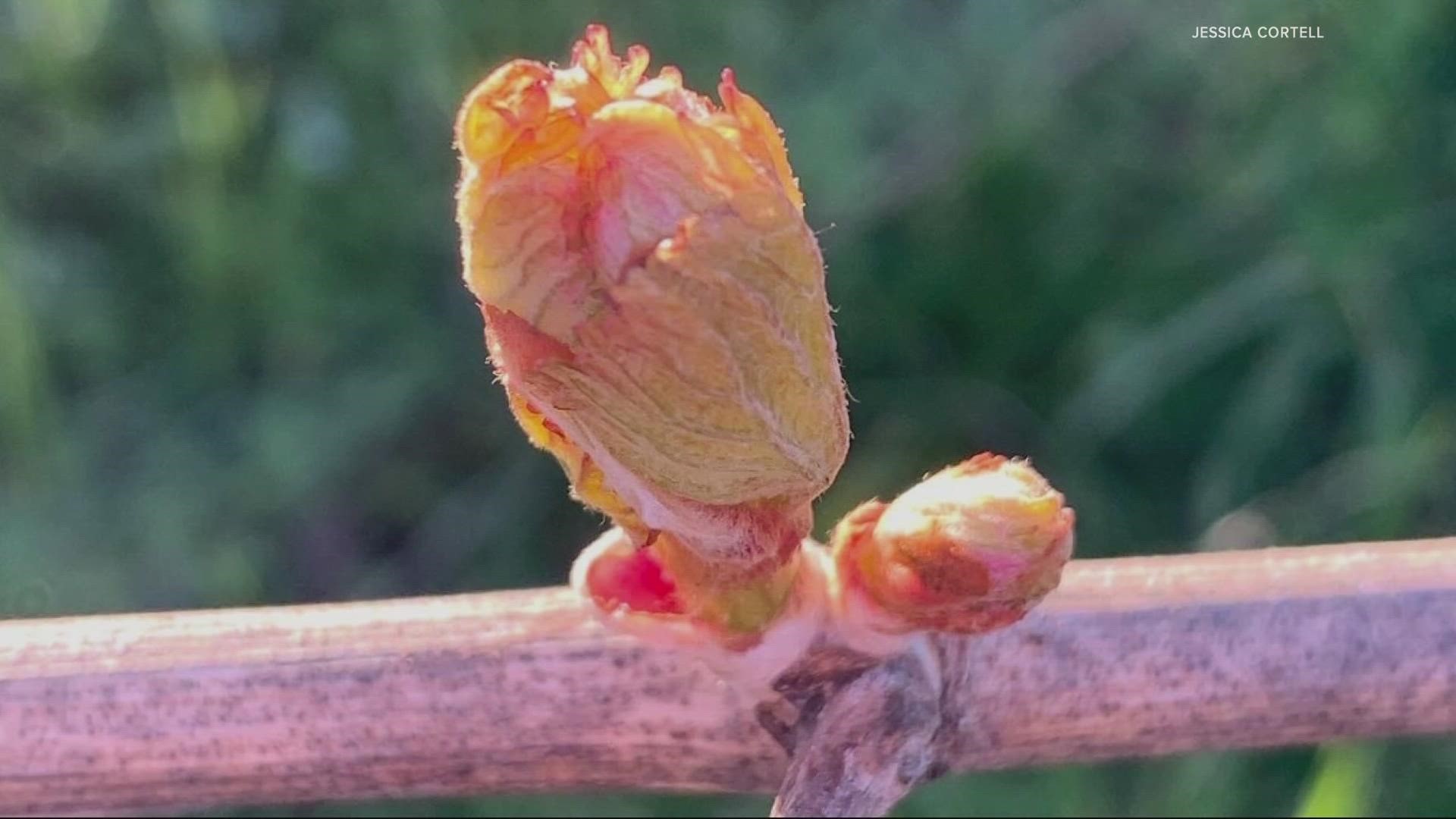OREGON, USA — The burst of winter weather last week is fully in the rearview mirror for many, but some in the wine industry are worried that the snow and frost could have damaged this year's crop. Others said it's just too soon to tell.
Winemakers told KGW that the vines are only vulnerable to below-freezing temperatures if they've reached 'bud break,' which refers to when they begin "waking up" for the warmer season.
"While they're dormant they can handle very cold temperatures, but as soon as they rehydrate and start growing, they lose that resistance to the cold and then 28 degrees can cause significant damage," said Jessica Cortell, owner of Vitis Terra Vineyard Services.
Cortell manages vineyards throughout the Willamette Valley. She said she's currently calculating how much of the crop could be lost for her clients after the snowstorm, but the impact varies by location.
"You could go to one vineyard where there was significant damage and then go to another nearby and have minimal, or less damage," she said.
Others said it's still far too early to know the exact impacts or losses from freezing conditions.
"Since frost impact is very site-specific, not all vineyards were impacted," said Jessica Mozeico, winemaker and owner of Et Fille Wines. She is also the Chair of the Board of Directors for the Willamette Valley Wineries Association.
There's no risk of the freeze impacting the quality of the crop, she said. It's a quantity problem, although she said it'll be another month or so before winemakers have a better idea of the scale of the problem.
"If a site already had bud break at the time that the freezing event happened, then it could stunt the growth, which will be a quantity issue, meaning that the crop load would be lower," she said. "It has nothing to do with quality."

